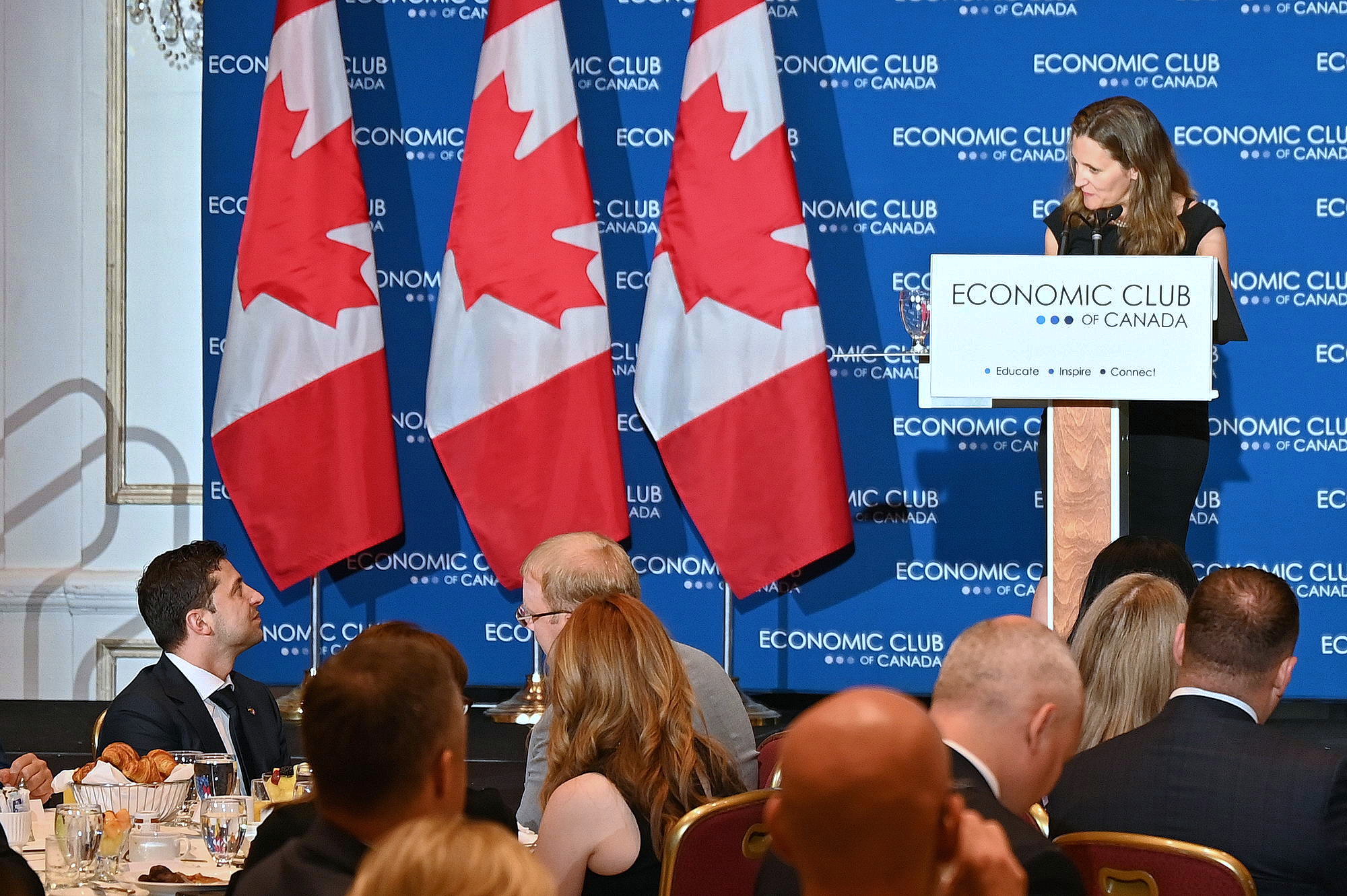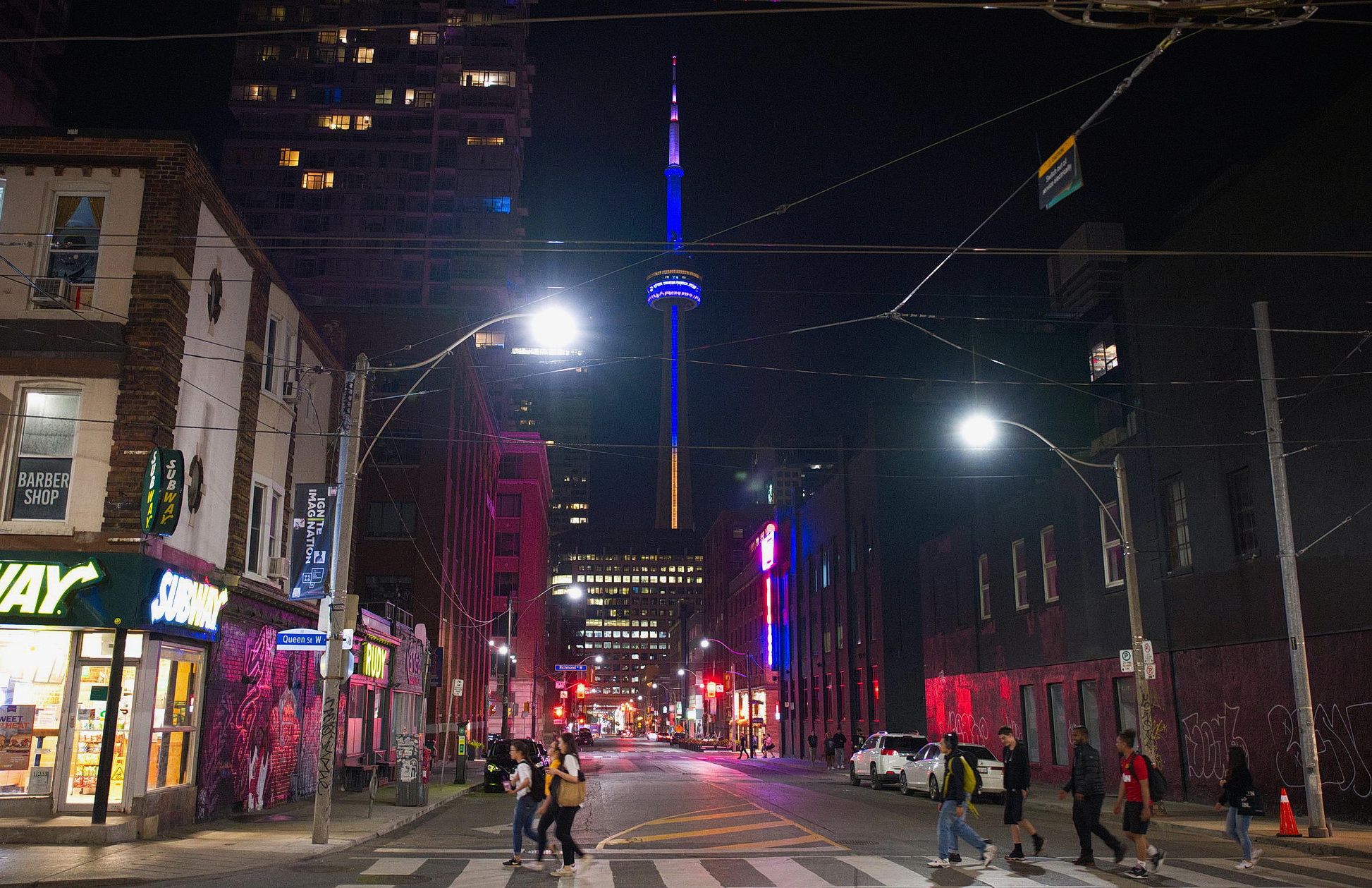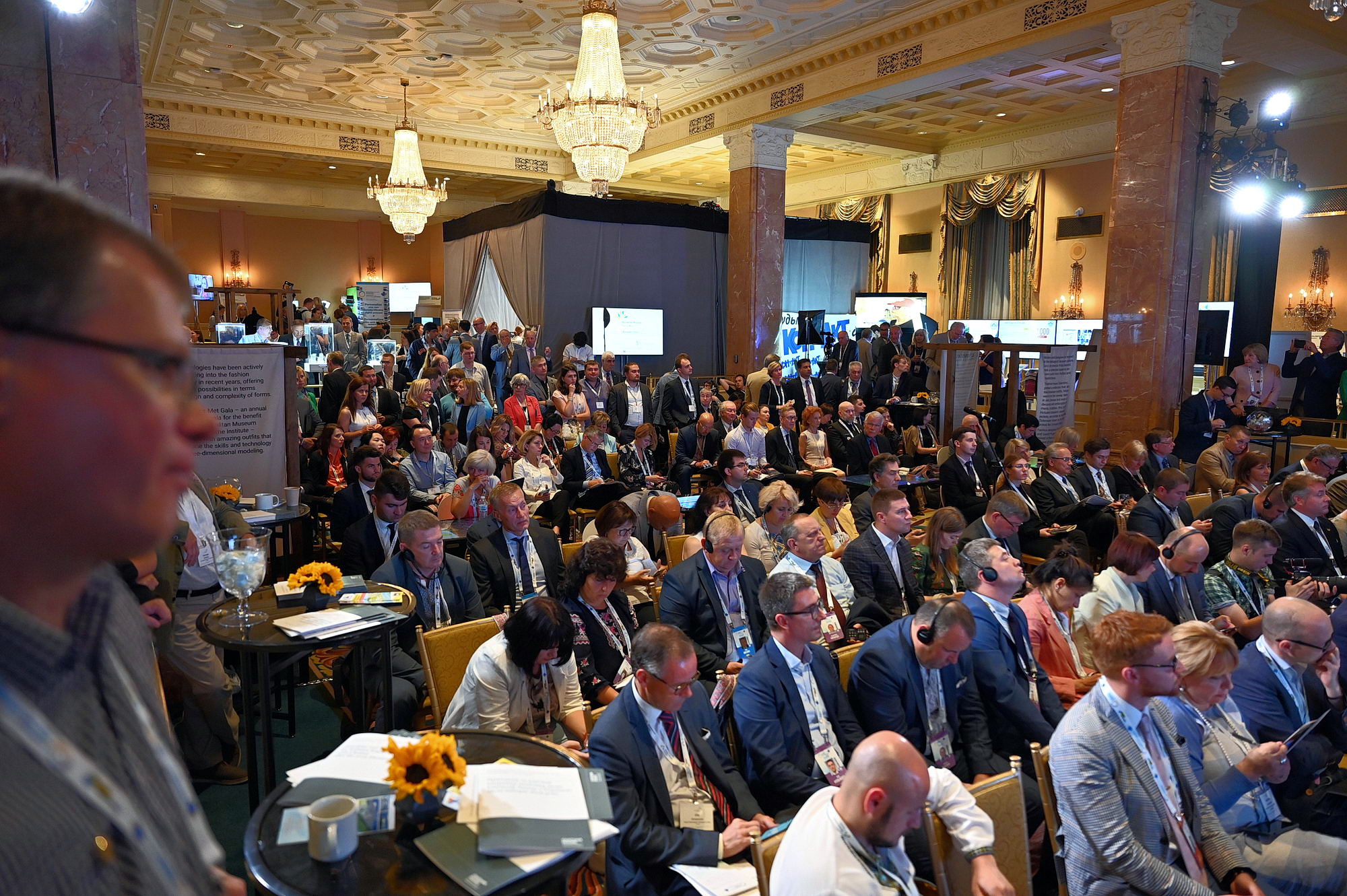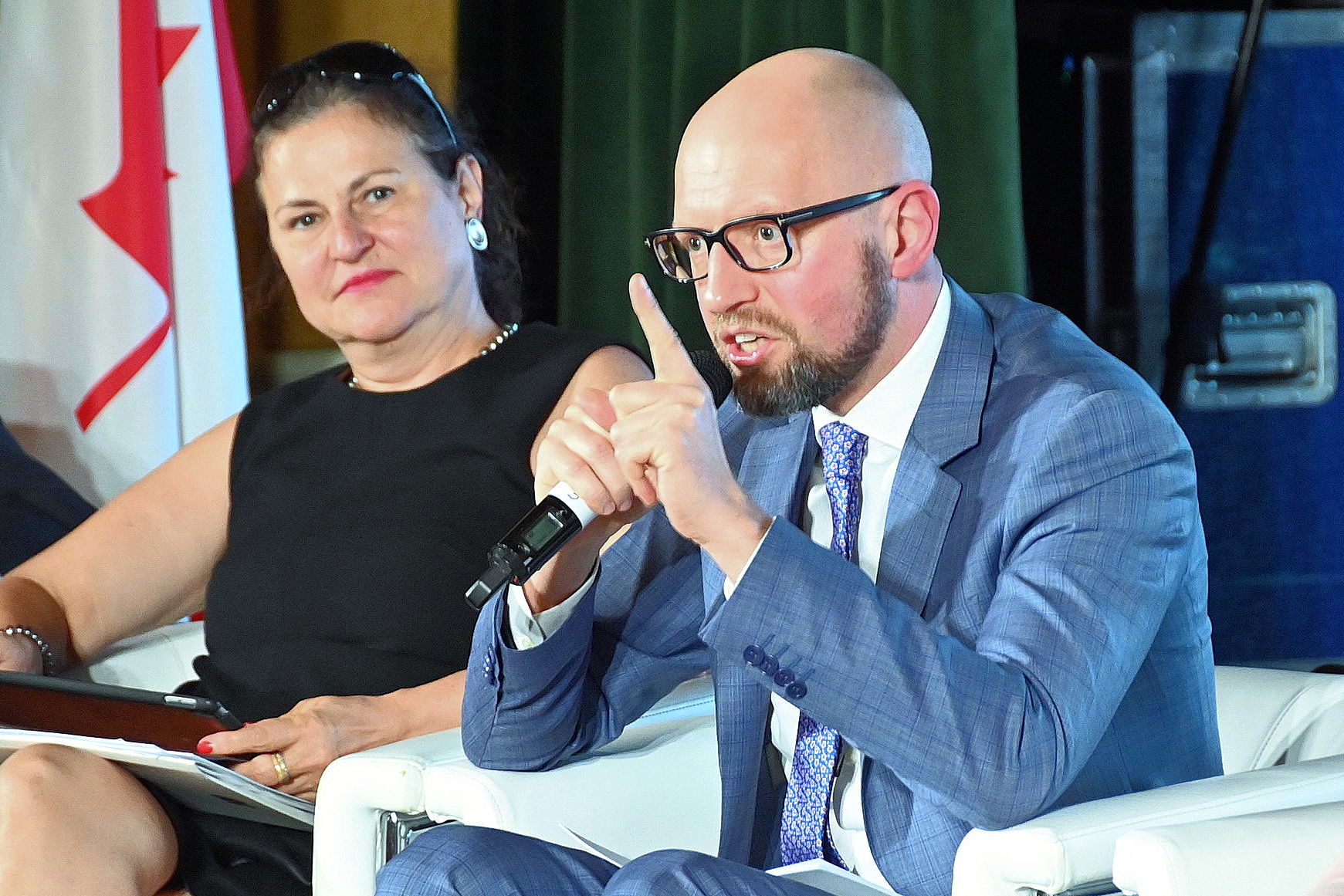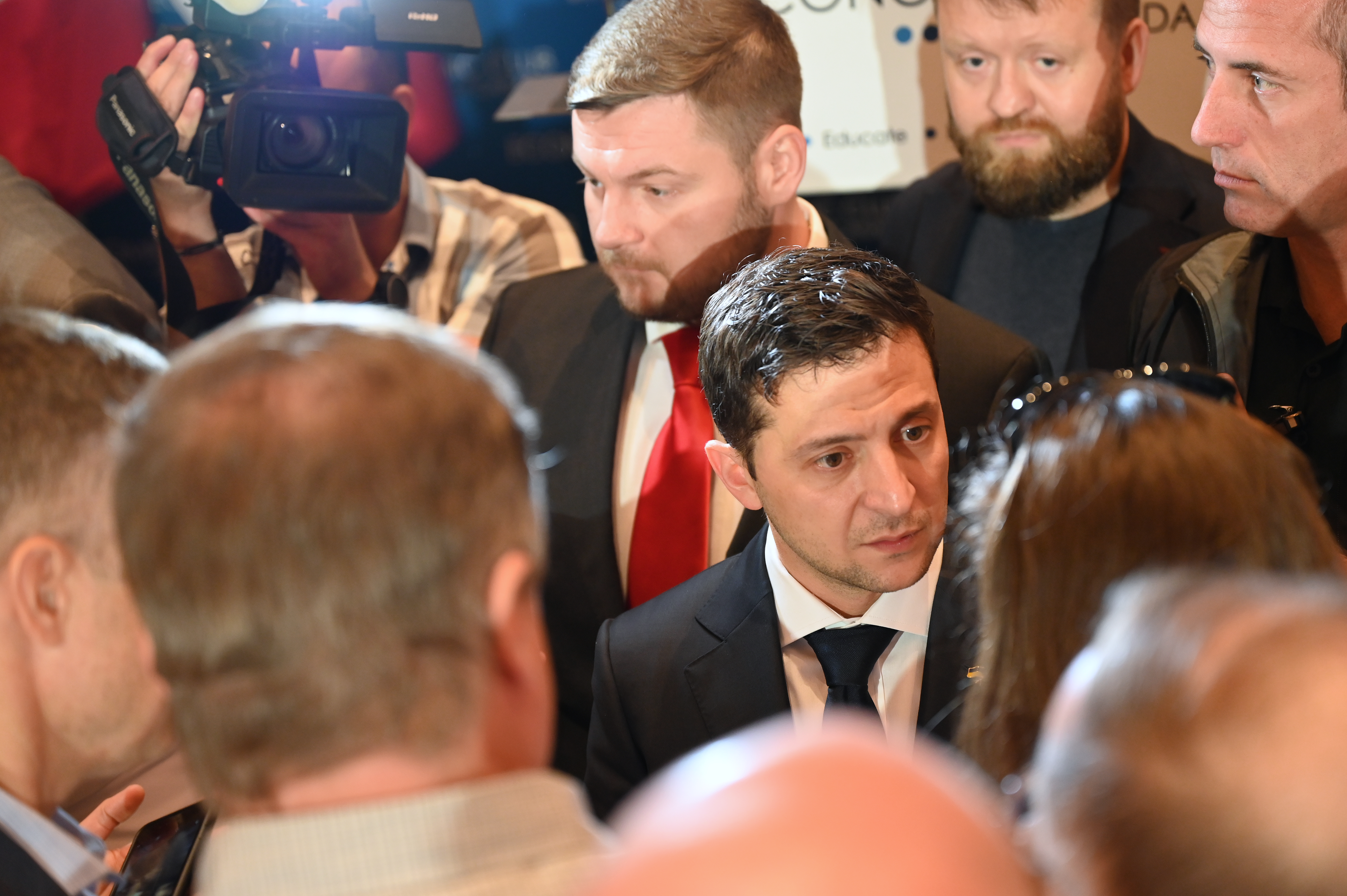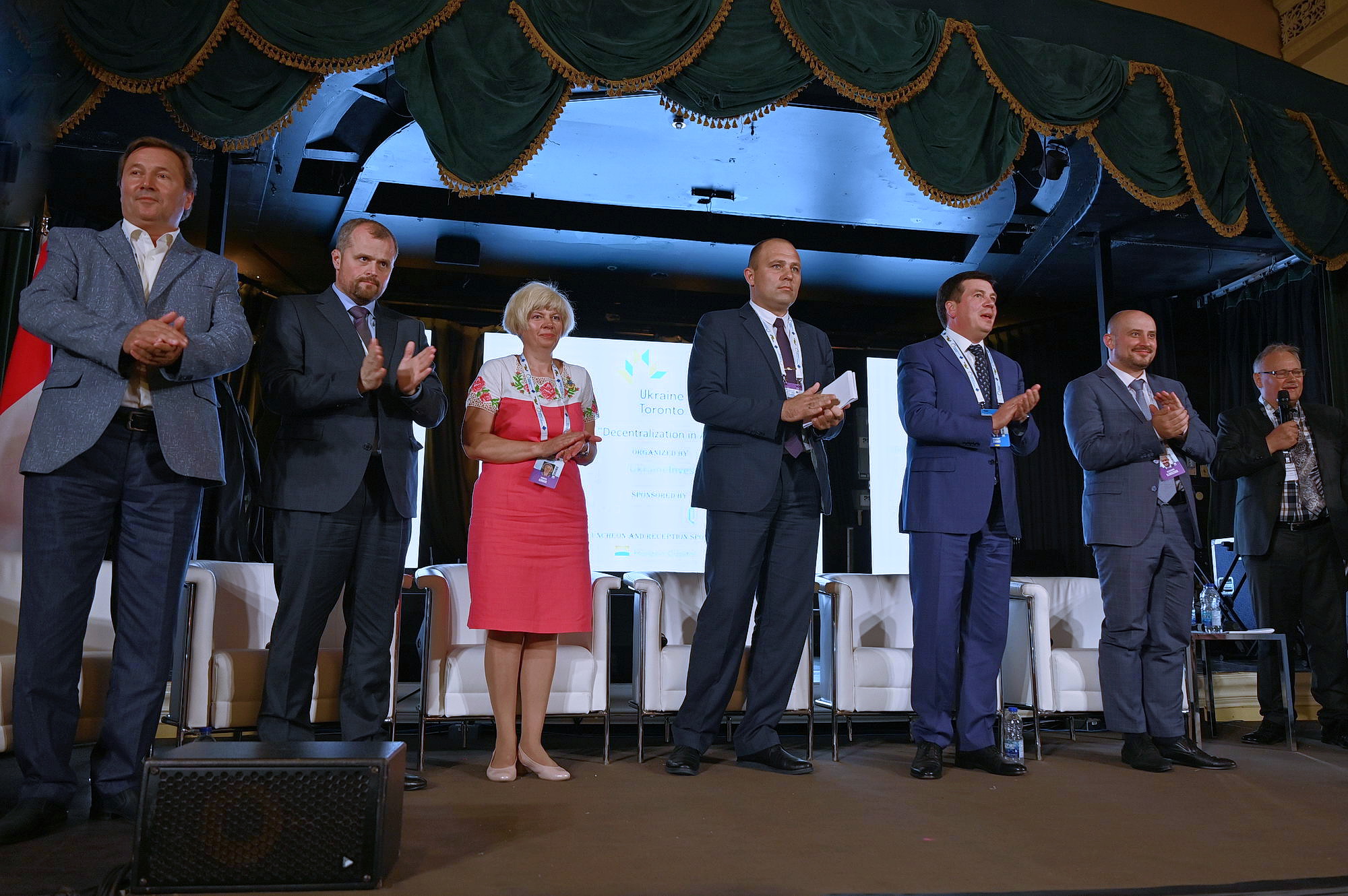TORONTO — At the beginning of July, politicians from around the world got their first close-up look at Volodymyr Zelensky in Toronto, where on July 2-3 he attended the Ukraine Reform Conference hosted by Canadian Prime Minister Justin Trudeau and Foreign Minister Chrystia Freeland.
It wasn’t Zelensky’s first trip to Canada, but it was his first as Ukrainian president. He arrived prepared and impressed the local audience by quoting the wisdom of Ukrainian-Canadian hockey star Wayne Gretzky while also mentioning the Toronto Raptors basketball team, which recently won its first NBA championship.
Zelensky charmed those who came — including foreign ministers, parliamentarians, business people, civil society actors and members of the Ukrainian Canadian community — with his “invest in Ukraine” message. He promised to rid Ukraine of its systemic corruption, make e-governance an inherent part of everyday life and reemphasized a central goal: to make Ukraine a member of the European Union and NATO.
But these grand promises stood in stark contrast to Ukraine’s much more modest record of success in tackling graft since 2014. Frustration with President Petro Poroshenko’s failed corruption fight is one reason why voters turned to Zelensky, electing him with a landslide 73 percent of the vote on April 21.
In the past five years, Ukraine has successfully stabilized its macroeconomic situation and banking system, but still remains one of the slower growing countries of Eastern Europe. The World Bank’s “Ukraine Growth Study” suggests that, at current economy expansion levels, it will take Ukraine decades to achieve high-income country status.
Rise and shine
One of the key tasks for Zelensky is to make Ukraine more appealing to investors who have become wary of its economic inefficiency and corruption.
The conference itself was a first step. Ukraine House Toronto served as a platform highlighting Ukraine’s integration into the global economy and political ecosystem. Launched two years ago in Davos alongside the World Economic Forum, Ukraine House drew more than 5,000 guests in its first year. This year, the in-person crowd was much smaller, but the event received 1.5 million views online.
Seven companies offering IT products came to Ukraine House Toronto to represent the country’s tech industry. With roughly 184,700 developers working for more than 4,000 tech companies, the Ukrainian IT-sector is a key economic driver and the third largest export service industry. It amounted to $4.5 billion in 2018.
“This is a truly impressive thing to highlight in front of the global business community,” said Ulyana Khromyak, deputy chairwoman at UkraineInvest, the Ukrainian government’s investment promotion agency created to attract and support foreign direct investment in Ukraine.
“By engaging people in panel discussions and the booths, we wanted to show that Ukraine is open for business… and that the best time to invest in Ukraine is now, when high-quality assets are undervalued and high-quality labor is competitive,” Khromyak explained.
Ukraine House Toronto was a success, attracting hundreds of guests and making it impossible at times to move around or find a spot to tune into discussions of Ukraine’s contributions to solving global challenges like the impact of data protection, cybersecurity, artificial intelligence and big data analysis.
Manifested support
The conference showed that the international community treats Ukraine seriously. It drew big shots from the Canadian parliament, as well as an array of foreign ministers from Sweden, Finland, Latvia, Lithuania, Poland, and Hungary.
International organizations were also represented, led by David Lipton, the first deputy managing director of the International Monetary Fund, and EU Commissioner Elzbieta Bienkowska.
However, Ukraine must do its homework to live up to its Western partners’ expectations. It needs to strengthen its weak judicial system and free institutions captured by the old oligarchic system. Swedish Deputy Prime Minister Margot Wallstrom predicted that Ukraine will succeed as a democracy if it confronts oligarchs, builds new institutions and creates a more inclusive society.
Zelensky’s two appearances were the highlights of the conference. On July 2, he addressed the conference itself and, on July 3, the Economic Club of Canada, both in Ukrainian. His messages were clear and witty, as he predicted that Ukraine is ready to become an Eastern European tiger, a reference to fast-growing Asian economies.
Many speakers noted that Zelensky made a favorable impression on them.
Alexandra Chyczij, President of the Ukrainian Canadian Congress, said she was pleased to see the president voice support for Ukraine’s path toward further integration with the West and developing the Ukrainian language.
James Temerty, a Ukrainian-Canadian billionaire and philanthropist, shared her opinion.
“I enjoyed meeting President Zelensky, he is very personable and a good listener,” he said.
Zelensky’s official delegation was reinforced by Finance Minister Oksana Markarova, Interior Minister Arsen Avakov, Minister of Regional Development Hennadiy Zubko, acting Health Minister Ulana Suprun, and Culture Minister Yehven Nyshchuk, who signed an agreement with the Canadian government to expand Canadian film and television access to Ukraine.
Although no major investments were announced, Zelensky hinted that his government had secured an agreement with Canada for the purchase of armored vehicles.
However, that appears to be wishful thinking so far. After meeting with Canadian Defense Minister Harjit Singh Sajjan, Avakov said Ukraine is still working to conclude a contract with Canada for armored vehicles.
“We met with the minister of Defense of Canada and discussed issues of military cooperation, including the purchase of lethal weapons. We have discussed specific cases concerning the latest armored vehicles and some components of armaments,” Avakov said. Hashing out the details and settling on the final agreement may take several months, he added.
Steps toward cooperation
On July 2, Canada announced $45 million in support for Ukraine, including $25 million to help the country promote greater inclusivity, especially of women.
Ottawa will also contribute $5 million to a mobile service delivery project in Ukraine, which aims to bring public services to the most vulnerable citizens affected by Russia’s war. Canadian partners will also station up to 45 local police advisers and trainers to serve in Ukraine until 2021.
But there are still areas of cooperation to improve upon.
The Canadian government has been hesitant to follow the European Union’s lead and begin lifting visa requirements for Ukrainians. In the first months of 2019, Canada rejected 23% of visa applicants from Ukraine, according to Roman Waschuk, Canada’s ambassador to Ukraine.
Ukrainians also expect extensive military support and want deeper integration between the two economies after the signing of the Canada-Ukraine Free Trade Agreement in 2017.
In the months after the agreement was signed, total trade in goods between Canada and Ukraine grew by 42 percent. Canadian investment in Ukraine increased by 20.9 percent in 2017, and was up 21.6 percent in the first half of 2018, compared to the same period one year earlier.
UkraineInvest’s Khromyak said they are currently focusing on information technologies, the agro-industry, oil and gas, renewables and innovative manufacturing sectors.
“Canadian companies have expertise in each of these sectors, while Ukraine has attractive investments opportunities to offer them,” she said.
